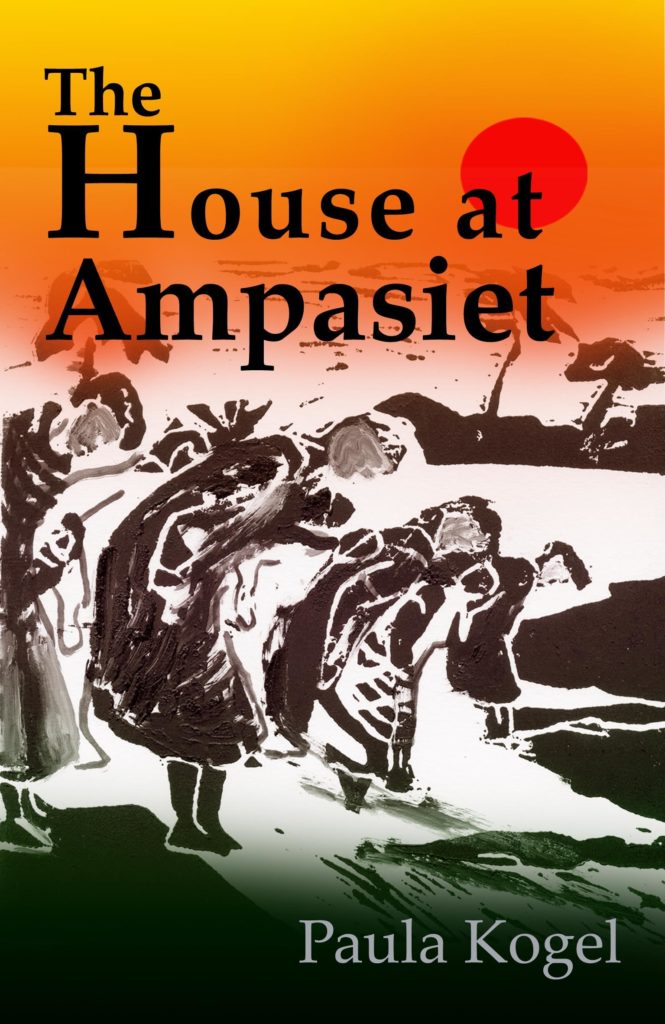– The plight of tens of thousands of European women and their children imprisoned in Japanese civilian prison camps in the most degrading and inhumane circumstances is one aspect of the Second World War that appears to have no place in history, part of that ‘Forgotten War’ in the Far East, virtually ignored for so many years. Now, nearly 70 years since Japan attacked Pearl Harbour, the mood is changing and many new books and films have appeared about the military campaigns to get Japan to surrender. But what are we told about the fate of thousands of women and small children, left behind and interned in camps, often fenced-off town districts, in equally barbaric conditions?
This month sees the English publication of The House at Ampasiet, by Lore Ridings, Dutch daughter of Paula Kogel, a German survivor of a Japanese prison camp for women and children during WW2. Her mother’s haunting memoirs of escaping the looming threat of war in Europe and her subsequent captivity and survival chronicle what happened in one house in one of the most infamous camps in the Far East: Camp Tjideng.
Camp Tjideng in Batavia (now Jakarta, capital of Indonesia) grew into one of the largest and most notoriously cruel punishment camp for women and children, reaching at its height more than 10,000 internees. To the women, survival meant working together for the sake of their children. What shines through is the courage and strength Paula and her fellow internees showed in the face of such unbelievable deprivation and cruelty. Paula, who was often seen as the enemy within because she was German, displayed enormous amounts of courage and optimism, not only throughout internment but also during the constant moves and separations from her husband during the post-war years and even more when she was forced to earn her living while raising her children after their divorce.
“Paula’s story is a heart warming, and deeply moving tale … as a new reader I was drawn in and gripped wholly by the many trials and tribulations she describes.” Chris Jones, School Standards Adviser
“This story made me think about many atrocities Japan committed against the PoWs. I felt we should not only think, but also pass this on to the next generation.” Koshi Kobayashi, Hiroshima Prefecture, Japan
“There is a special reason for producing an English version of the book,” commented Lore Ridings. “This is a story of female survival that transcends nationality. It is a testimony to the courage and strength of the women from many countries and not just The Netherlands, caught up in a forgotten war at the other side of the world, desperately trying to survive, and how their courage has inspired their sons and daughters, now scattered around the world. And of course, the story is equally relevant to many young people today whose fathers or grandfathers also survived imprisonment by the Japanese, yet never spoke about it.”
Originally published in Dutch in 2005, this English version was translated by Roberte Swain-Halberstadt, herself a survivor of such a camp. It also includes the experiences of Paula’s husband on the Burma Railway and in the Japanese coal mines, as well as an account of the family’s post-war re-integration.
The House at Ampasiet is available directly from Troubador’s online bookshop:
http://www.troubador.co.uk/book_info.asp?bookid=977 at US$15 plus p&p.
Title: The House at Ampasiet
Author: Paula Kogel
Publisher: Troubador Publishing Ltd
Web: www.troubador.co.uk
ISBN: 9781848762527
(Also available on Amazon.com from March 31st)
For further information please contact:
Lore Ridings – Email: lore.ridings@prasada-ar.com
Or via Troubador Publishers: marketing@troubador.co.uk



